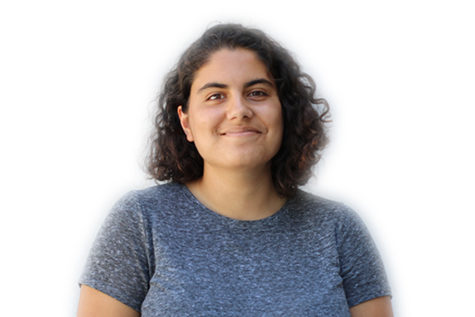People will tell you to check your privilege all the time. Before you laugh it off as a “snowflake statement,” think about the parts of your identity that allow you to dismiss the issue.
If you’ve never had to think about how some unchangeable aspect of yourself influences your day-to-day life, this article is for you.
In recent years, many people have lamented the idiocy of political correctness, longing for the days when they could make a joke about anyone without any backlash.
Times have changed.
If they haven’t already, the most privileged people in America need to take a step back and look at themselves through a privilege-lens.
To do this, you need to understand that there are two kinds of privilege: visible and invisible. These definitions are pretty straightforward. Race, gender, and age are visible privileges. You don’t need to talk to someone to see these things about them, and they’re often the ones that directly influence things like job opportunities.
Then, there are the invisible privileges, which are far more numerous. Financial status, education, birthplace, parents’ marital status, and sexuality, to name a few, are invisible privileges.
The reason you need to look at yourself and recognize your privilege is simple: you can better understand your position in the world and how to use it. It’s impossible to force someone to care about those with less opportunity than themselves, but chances are, if you know what makes you more equipped to be a successful American, then you know how to help those who lack that privilege.
Here’s why you actually need to care: nothing you accomplish in life is up to luck. Everything about you, from the college you attend to the job you hold to the way you treat other people, depends on your privilege.
I care about this right now because I am a second-semester junior in high school. My top priorities are to do well on the SAT and figure out which colleges to apply to. Because I go to Carlmont, you may have correctly guessed that I have the privilege of financial stability. I get to attend SAT prep classes, and I have a college counselor who’s helping me determine where I want to go in the fall of 2020.
My thoughts have been consumed by these two topics, and I have realized that I’m not just lucky to be able to use these resources, but I’m also privileged to have them. And I now need you, whoever you are, to understand the privileges you have in this life.
Many of the privileges people have are unchangeable; you can’t help it if you’re white, male, straight, rich, or mentally and physically “normal.” Just because you have one privilege does not mean your life is easy. There is no reason to feel ashamed to be any of these things, or to feel ashamed that you are not. Instead, recognize the parts of you that will benefit you now or in the future. And do not take them for granted.
I know that I can make someone aware of their privilege. A cisgender male cannot deny that he is that. But I am completely unable to make someone care about their privilege.
This article is unlike past ones I’ve written; it is not a call to action or a demand that you do something. This article is a request. I am requesting that you do me a favor, and tell your friends and family to do the same.
The world will probably always be unjust because there is no way to meet everyone’s needs, no way to make every person truly and completely equal. That means we need to make efforts to bridge every gap we can, and that starts with an acknowledgment of those gaps.
To be better as a human race, the only place we can go is up. We can’t fly there; we need to push each other there. If you have a privilege, visible or invisible, use it. Not only for your own gain, but for the improvement of our society.
If you see someone struggling, and you have the power to not struggle, help them. Call out those like you who do not.
I am privileged to have a voice in this country and an opportunity to use it. I implore you to use yours.


